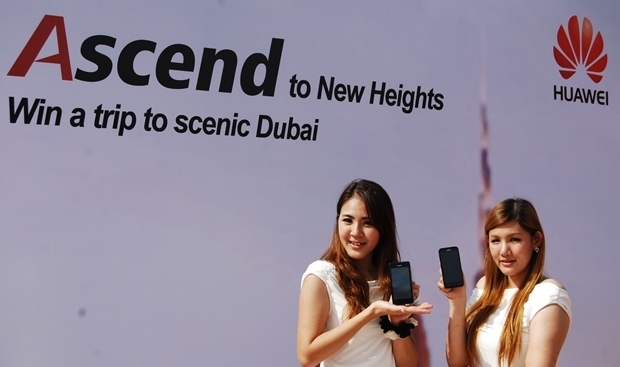Global tech firms, including chip suppliers, are cutting ties with Huawei Technologies after the U.S. government put the world’s largest telecom equipment maker on a trade blacklist citing national security concerns, Reuters and Bloomberg reported.

The United States has effectively banned its companies from doing business with Huawei, exacerbating an ongoing Sino-U.S. trade war. The ban applies to goods that have 25 percent or more of U.S.-originated technology or materials, and may therefore affect non-American firms.
Huawei is allowed to buy U.S. goods until Aug. 19 to maintain existing telecoms networks and provide software updates to its smartphones.
Following are companies that have suspended business with the Chinese firm:
Google on May 19 suspended the transfer of hardware, software and technical services to Huawei, except what it has made publicly available via open source licensing.
Intel, Qualcomm, Xilinx and Broadcom told their employees they will not supply critical software or components to Huawei until further notice, Bloomberg reported on May 19.
Optical components maker Lumentum Holdings said on May 20 it discontinued all shipments to Huawei. Huawei represented 18 percent of the company’s total revenue in the latest quarter.
Radio frequency chipmaker Qorvo said on May 21 it expects first-quarter revenue to take a $50 million hit due to a halt in shipments to Huawei. The Chinese firm represented 15 percent of Qorvo’s total revenue in the year ended March 30.
Analog Devices CEO Vincent Roche on May 22 said his company will not be shipping anything to Huawei for the foreseeable future.
The optical communications chipmaker Inphi Corp on May 22 lowered its second-quarter earnings forecast based on its understanding of the U.S. government blacklisting of Huawei, which accounted for 14 percent of Inphi’s sales in 2018.
British chip designer ARM, owned by Japan’s SoftBank Group, said on May 22 it has halted relations with Huawei to comply with the U.S. ban.
Japanese electronics giant Panasonic said on May 23 it had stopped shipments of certain components to Huawei. It will still sell some components to Huawei, a point it made clear on its China website.
Toshiba, the Japanese conglomerate, said on May 23 it had suspended shipments to Huawei to check whether its products included U.S.-made components.
Major British-based chip designer ARM is suspending business with China’s Huawei to comply with U.S. regulations, the BBC reported on Wednesday.
The U.S. Commerce Department blocked Huawei from buying U.S. goods last week, saying the firm was involved in activities contrary to national security.





